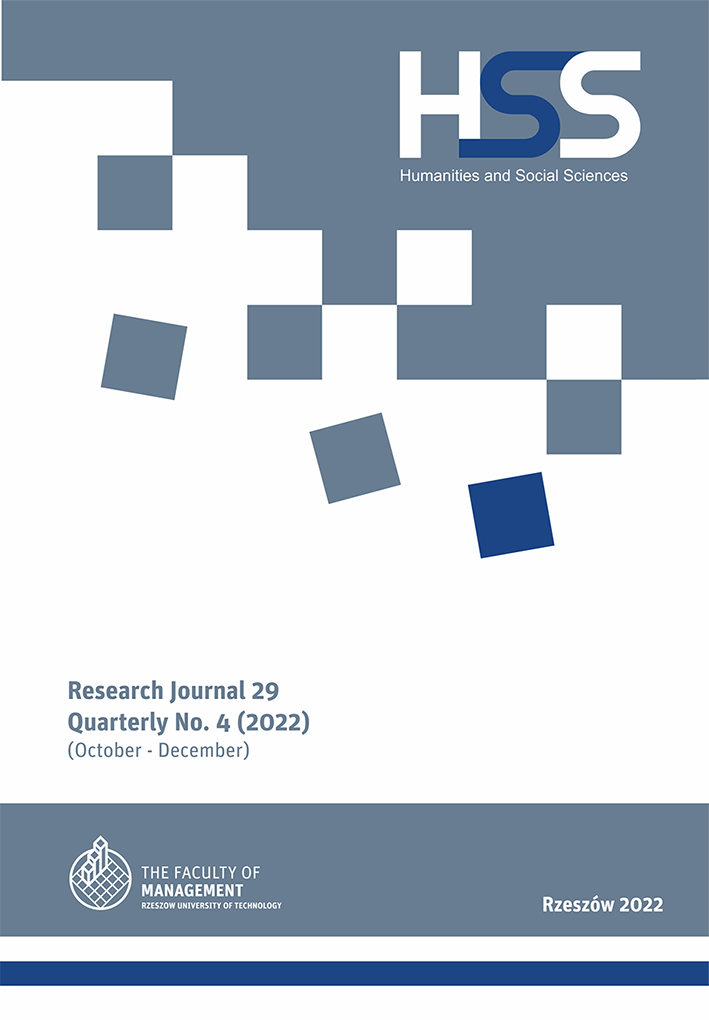Abstract
This article presents the powers of Russia and Germany against the backdrop of a group of 12 countries that launched a new organization in Europe in September 2015 called the Three Seas Initiative. Member states try to create a counterbalance, and at the same time compete with two great countries: Germany and the Russian Federation (Russia). The members of the Three Seas Initiative are small and medium-sized entities on the European scene. The aim of the article was to indicate the power of the examined entities of the international relations of Russia and Germany against the background of the countries forming the Three Seas Initiative. The article uses the methodology developed by Professor Sułek to study the power of the indicated countries.
References
Aron, R. (1995). Pokój i wojna między narodami (teoria). Warszawa.
Baziur, G. (2018). Trójmorze jako koncepcja bezpieczeństwa i rozwoju ekonomicznego Europy Wschodniej. „Przegląd Geopolityczny”, 23.
Dahl, M. (2018). Inicjatywa Trójmorza z perspektywy niemieckiej. „Studia Europejskie”, 2.
Dobija, M. (2019). Geopolityczne czynniki innowacyjnego rozwoju Polski i krajów Trójmorza. „Nierówności Społeczne a Wzrost Gospodarczy”, 59(3/2019).
Halecki, O. (2002). Historia Europy – jej granice i podziały. Instytut Europy Środkowo-Wschodniej. Lublin.
Kiczma, Ł., Sułek, M. (2020). Potęga państw 2020. Rankingi potęgometryczne. Warszawa.
Lach, Z. (2020). Dylematy rozwoju i bezpieczeństwa państw Europy Środkowo-Wschodniej. „Przegląd Geopolityczny”, 31.
Niemcy chciałyby kontrolować ideę Trójmorza [Access: 20.07.2022]. Access on the internet: https://congress.lubelskie.pl/niemcy-chcialyby-kontrolowac-idee-trojmorza.
Pawłowski, K., Jakóbowski, J. (2020). Trójmorze jako odpowiedź Europy Środkowej na globalne i unijne wyzwania / The Three Seas Initiative as a response of Central Europe to global and European Union’s challenges. „Sprawy Międzynarodowe”, t. 73, nr 2.
Prezydent.pl [Access: 1.05.2022]. Access on the internet: www.prezydent.pl/aktualnosci/wizyty-zagraniczne.
Siódmy szczyt Inicjatywy Trójmorza w Rydze [Access: 20.07.2022]. Access on the internet:https://pism.pl/publikacje/siodmy-szczyt-inicjatywy-trojmorza-w-rydze.
Soroka, G., Stępniewski, T. (2019). The Three Seas Initiative: Geopolitical Determinants and Polish Interests. „Rocznik Instytutu Europy Środkowo-Wschodniej”, z. 3.
Stańczyk J. (2018). Globalne stosunki sił, 1992–2016. „Rocznik Bezpieczeństwa Międzynarodowego”, Wrocław, Vol. 12/2.
Sułek, M. (2004). Badania i pomiar potęgi państw po Zimnej Wojnie – metody i wyniki. „Zeszyty Naukowe AON”, nr 1(54).
Świder, K. (2018). Europa Środkowa jako obszar projektowania geopolitycznego. „Studia Europejskie”, nr 2.
Trójmorze [Access: 1.05.2022]. Access on the internet: https://www.gov.pl/web/dyplomacja/trojmorze.
Ukielski, P. (2018). Inicjatywa Trójmorza w polskiej polityce zagranicznej. „Studia Europejskie”, nr 2, Warszawa.
Ukraine, Moldova willing to join Three Seas Initiative [Access: 1.05.2022]. Access on the internet: www.ukrinform.net.
Wojtaszak, A. (2020). Inicjatywa Trójmorza a perspektywy rozwoju państw regionu Europy Środkowo-Wschodniej w drugiej dekadzie XXI wieku. „Sprawy Międzynarodowe”, t. 73, nr 2, Warszawa.
Zenderowski, R. (2021). Geopolityka Trójmorza. Przestrzeń – Historia – Dawne idee i współczesne koncepcje. Warszawa.
Zhigao, H. (2020). America’s Return to Central and Eastern Europe and its Implications, „China International Studies”, No. 82, May/June.
Złoty podział [Access: 14.04.2022]. Access on the internet: https://encyklopedia.pwn.pl/haslo/;4001815.


